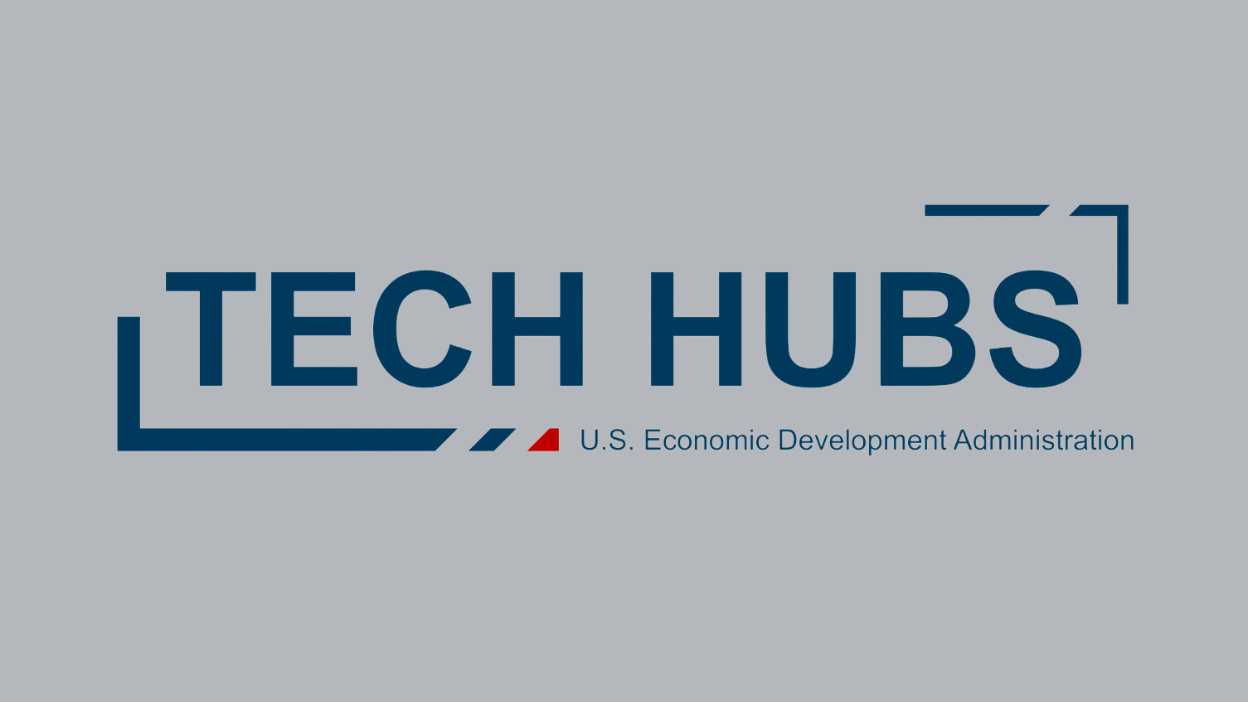
EDA webinar provides additional insights into “Tech Hubs” solicitation
The interest is high if the number of questions are any indication. EDA expects to designate at least 20 applicants as tech hubs during Phase 1 and use $15 million allocated for strategy development grants to make awards averaging $500,000 each.
In a post for last Monday’s edition of teknovation.biz, we made the statement that “we know there is a great deal of interest across the Volunteer State in the news release announcing the Notice of Funding Opportunity (NOFO) issued on Friday by the U.S. Department of Commerce’s Economic Development Administration (EDA).”
Well, after Thursday afternoon’s webinar hosted by the federal agency to provide additional insights into the NOFO, we could say with certainty that the competition on a national basis will be keen. In the space of an event that lasted less than 45 minutes, about 135 online questions were posted in the chat feature. Exactly how many individuals viewed the webinar is unknown, but the number of questions is certainly an indicator of the level of interest.
Eric Smith, Director of EDA’s Office on Innovation and Entrepreneurship, presented the bulk of the information shared with viewers, drawing from this slide deck. Late in his presentation, he made this key point: “We’re really focused on deployment of technology, not R&D.” (EDITOR’S NOTE: If you missed the webinar or want to review a specific topic, EDA has posted it on YouTube. Click here to watch.)
Our takeaways were numerous, starting with one that struck close to home. “We want to enable industries of the future,” Smith said. How interesting is that considering the theme of the Knoxville-based Techstars accelerator supported by Oak Ridge National Laboratory, the Tennessee Valley Authority, and the University of Tennessee System?
- The program was authorized by the “CHIPS and Science Act of 2022” at a $10 billion level. However, the appropriation for the current NOFO is $500 million.
- The deadline to apply is August 15.
- There are two components. One would be to earn the designation as a tech hub immediately, while the other would be to secure a strategy development grant to better prepare a region for designation at a later date as a tech hub if there is another NOFO.
- Regions can apply for either of the components or both. They do so by forming a consortium, and there are specific minimum requirements that include at least one higher education institution, one subnational or tribal government, at least one labor or workforce training organization, economic development entities, and two or more relevant industry members.
- Consortia must have (1) strong alignment and a shared strategic vision – in other words, not a group formed for convenience; (2) a designated lead member; (3) a clear plan to identify a Regional Innovation Officer who Smith said “is responsible for maintaining governance”; and (4) a focus on the quality that each of the partners brings to the table as opposed to simply the number of partners.
- Consortia do not have to be a legal entity.
- “Applicants can choose their geography,” Smith said, adding quickly that “the key is relevant and interconnected assets.” Those assets can also include organizations not necessarily located within the consortium’s geography, and he used the Manufacturing USA institutes as an example of resources that could/should be tapped.
- Those seeking designation now as a tech hub must make their case in their proposal, while those wanting a strategy grant would be describing how they would use the federal funding to strengthen their consortium.
- EDA expects to designate at least 20 applicants as tech hubs during Phase 1, paving the way for them to apply for $50 to $75 million in funding in Phase 2. The plan is to make five to 10 of those larger awards.
- The federal agency has allocated $15 million for strategy development grants that will average about $500,000 each, a figure that suggests about 30 awards.
- The federal legislation that authorized the program included several restrictions or requirements – you can decide how to characterize them. For the tech hubs, there must be a minimum of three designated in each of EDA’s six regions. That means that any applicants from Tennessee will be competing with applicants from seven other states that comprise the Atlanta region. Further, one-third of the total awardees must benefit small and rural communities that Smith said comprised populations not to exceed 250,000 residents. Also, another one-third must include a state that has earned the designation by the National Science Foundation for its “Established Program to Stimulate Competitive Research” (EPSCoR) program. Tennessee used to be one but is no longer on the list. At least one of the tech hubs must be located in a low-population state of which there are nine currently. Finally, two of the designated tech hubs must benefit underserved communities.
- Smith reviewed the evaluation criteria (see Slide 12) and the technology focus areas (see Slide 13).
Like what you've read?
Forward to a friend!

